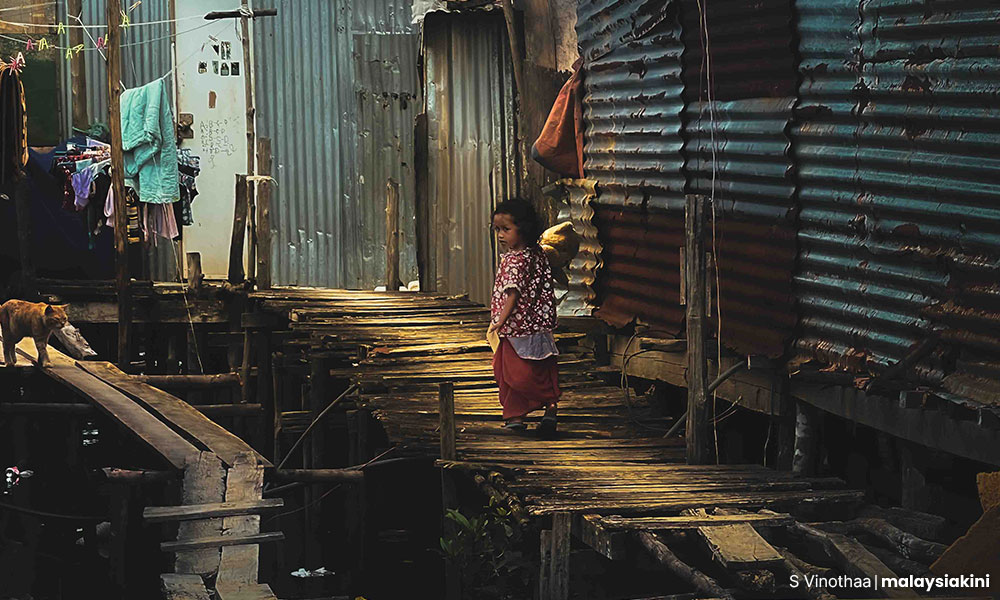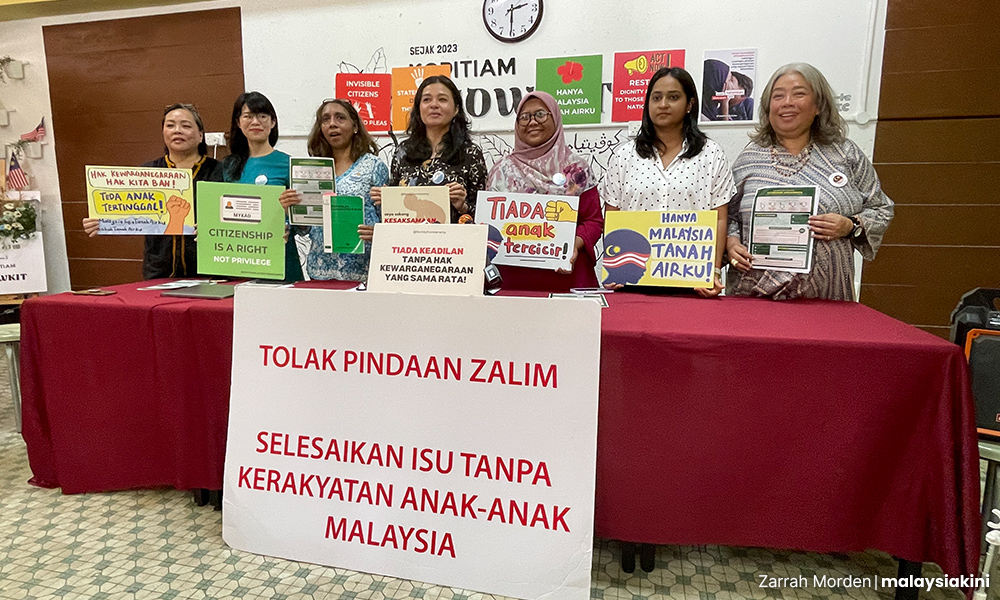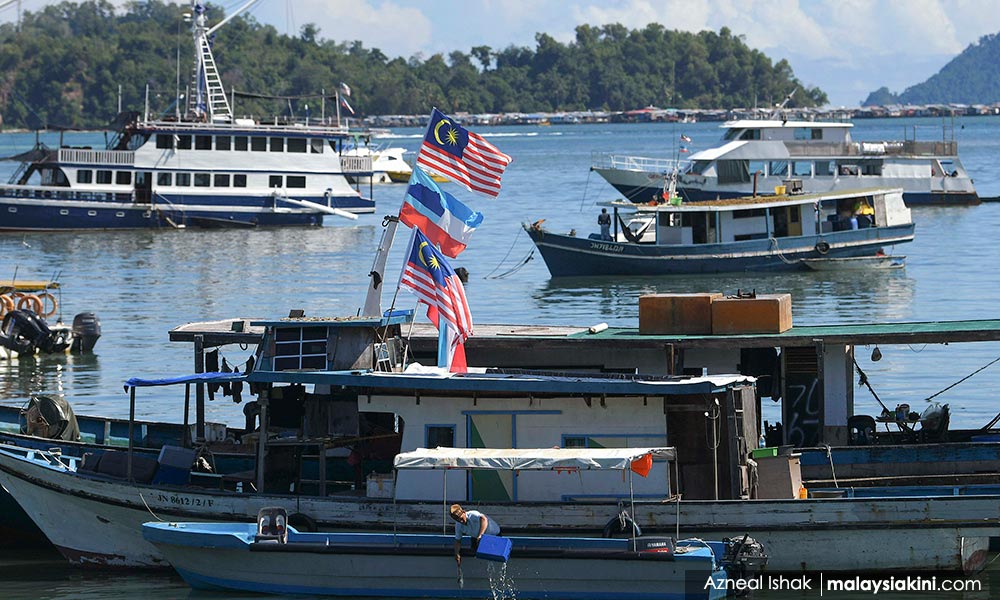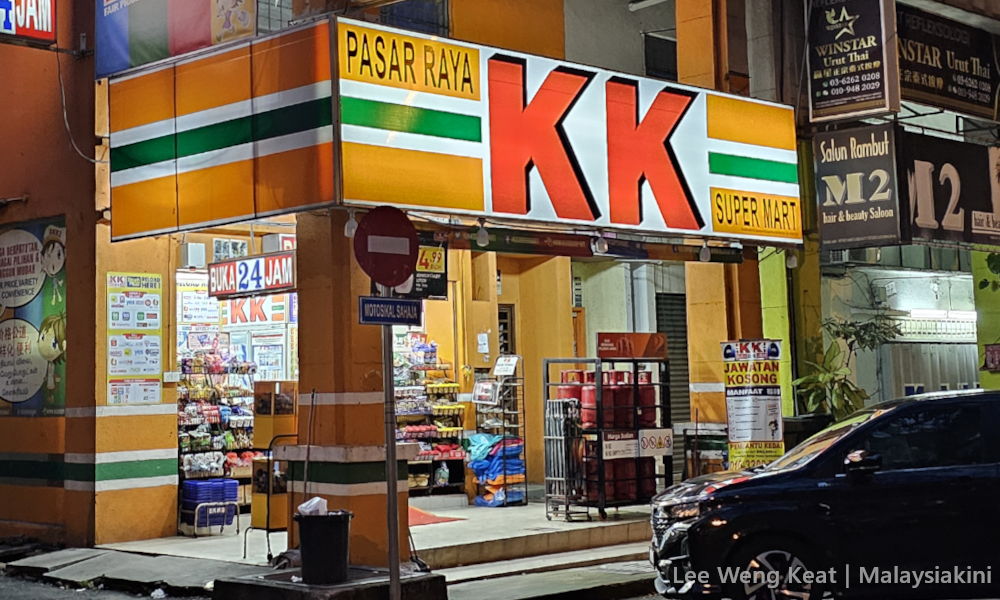How much is the cost of staying in political power? Who will suffer the consequences? There are real concerns that deal-making on the part of Prime Minister Anwar Ibrahim’s government is causing unnecessary harm.
Rather than promoting unity, political bargains are tearing at the fabric of society.
First, there were charges withdrawn and discounted for political allies as the Anwar government backtracked on its promise to address corruption. The reason given was political compromises, but the government’s claim to strengthen reforms was compromised instead.
Regressive constitutional amendments
In recent weeks, there have been additional worrying trends. Regressive amendments on citizenship have been proposed, with additional laws to curb political freedoms believed to be in the works in areas of freedom of expression, media regulation, and more.
While two of the citizenship amendments were withdrawn, notably on foundlings, backward heartless measures remain.

According to the four truly horrible remaining amendments, an unmarried woman impregnated through rape who chooses to have the child would give birth to a stateless child.
A woman who gave up her citizenship to live with her husband and family in Malaysia (a process that already takes years) would now face circumstances where, if she had to divorce the husband (including from potential beating and abuse), she would become stateless (within two years of being granted citizenship).
The list goes on. Disproportionately, the measures negatively impact women and minority communities, especially those in Borneo.
The amendments were first suggested as a necessity for the political support of the Council of Rulers, then the explanation moved that they were necessary for the support of Hajiji Noor’s Sabah government.
The veracity of those explanations remains unclear. The entire process of how the amendments have been presented raises the question of exactly who is vested in engaging in such harmful amendments that dehumanise and deny basic rights to innocent people, including children.
That the four regressive amendments have been tied to promised measures to address discrimination against Malaysian women for children born abroad was deeply concerning from the onset.

The calls by civil society to decouple and withdraw the added-on regressive amendments speak to deep-seated concerns in society about causing harm.
The government – similar to the worst moments of Umno governance – is ploughing ahead, bulldozing concerns about transparency and decency.
The bill is reportedly scheduled for the first reading without the regulations even circulated for review in Parliament. Questions are being raised about the need to hurry the controversial amendments without a full and proper review and consultation.
As with the continual inconsistent and non-persuasive stream of defences for the amendments presented in Parliament to date, a perceived need for political deals and political survival is being prioritised over what is right.
There is little serious reflection on the harm being caused to thousands, as the concern is about those in office staying in power no matter the cost.
Better approach to statelessness needed
A better step moving forward is to withdraw the four controversial regressive amendments and expand a serious discussion about the issue of statelessness in Malaysia. Foremost, the law should not be passed without the regulations being transparently circulated.
Yet, more needs to be done to consider the issue of statelessness holistically. The relevant parliamentary committee has already begun discussion of initiatives.
Another option is to set up a non-partisan expert committee to provide recommendations. Sabahans (not just politicians who play this issue for political capital) particularly deserve a meaningful voice and avenue to reach viable solutions to the problems inflicted on them.
The stateless issue is multifaceted with multiple causes. It has been allowed to fester and worsen. The responses have generally reflected myopic short-sighted political framing and the causes are deeply rooted in politics.
For example, the far-reaching problem of undocumented persons in Sabah goes back to Project IC. Then, harmful political deals were struck, and those impacted have had to suffer the price. Sabah continues to bear a grossly unfair burden, as the issue of undocumented persons continues to be a serious obstacle to redress poverty and attract sustainable investment.
At the same time, the situation for refugees and undocumented persons across Malaysia is dire. They cannot work legally, access affordable health care and education, and have been condemned to a life of illegality and despair.

The level of poverty of many stateless persons is truly horrifying. That so many bravely survive is a testimony to the perseverance of the human spirit.
Some do not appreciate that Malaysia has one of the largest stateless populations in the world – more than double the population of Gaza.
While the exact number is not known, more than one million people in Malaysia lack proper documentation, particularly in Sabah. Far too many of these are children, with many born to parents who themselves were born in Malaysia stateless as a result of decades of neglect in how this issue was administered.
The government’s own role in perpetuating the statelessness problem cannot be ignored. The current regressive amendments being introduced will only worsen the situation and will not in any way move Malaysia forward to resolve these difficult issues.
Regressive political discourse
The amendments are not the only issue causing concern. The last week has seen outrage with KK Mart’s sale of offensively labelled socks.
What the supermarket did was wrong, and they should have known better. Many have spoken out on this issue after the franchise’s apology. KK Mart has rightly been rebuked and should consider further steps to make amends through philanthropy and new safeguards and measures to train staff. This incident is a learning moment that can become constructive.
Instead, it has served as a catalyst to reduce rights and engage in divisive discourse. Trauma is being unnecessarily compounded. Doxing and vigilantism have not been repudiated, for example.
A key ally in the government - Umno - has opted to stoke religious anger. While the issue is being portrayed as building on Gaza boycotts, the overtones of attacking Malaysian minorities in Malaysia in the KK Mart incident are present.

The government has empowered its Umno ally who now seems to be feeding political polarisation unnecessarily. Umno is using tried methods of division to try to build support for itself at the expense of harm being caused. Sadly, additional wrongs do not make a right.
Better approach to sensitive incidents needed
The KK Mart incident should serve as a catalyst to strengthen efforts to promote unity and ethnic understanding. Emotions are understandably strong, but these can be better addressed through proactive measures that provide means for discussion and redress. A sit-down and concrete measures to move forward offer a short-term path ahead.
In the medium term, the Anwar government needs clear and substantive plans to promote better understanding across communities. These issues are also multifaceted and complex, requiring multiple solutions.
So far, little has been done, with the go-to responses deepening resentment, including arrests of some ordinary citizens and not others.
Recent developments highlight that the government is far from promoting unity and is itself divided on issues such as citizenship and handling of religious issues. What especially has been of concern is the approach has not been focused on viable solutions.
Instead, rushed amendments and emotive political rhetoric worsen issues and cause unnecessary harm. So-called political compromise is being used as an excuse.
For too long, politics held Malaysia back. Now, unfortunately, politics continues to hold the Anwar government back. It can do better. - Mkini
BRIDGET WELSH is an honourary research associate of the University of Nottingham’s Asia Research Institute, a senior research associate at Hu Fu Center for East Asia Democratic Studies, and a senior associate fellow at The Habibie Centre. Her writings can be found at bridgetwelsh.com.
The views expressed here are those of the author/contributor and do not necessarily represent the views of MMKtT.



No comments:
Post a Comment
Note: Only a member of this blog may post a comment.